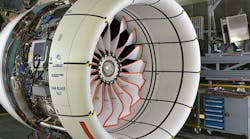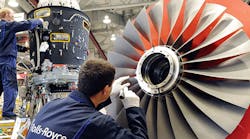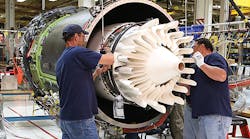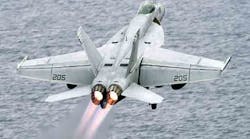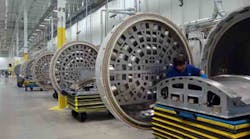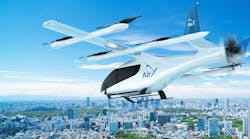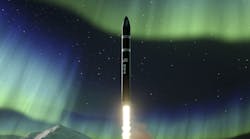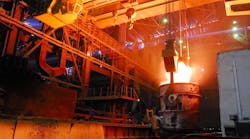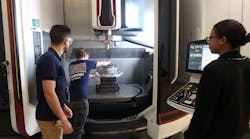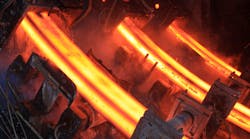GE Aviation and its joint-venture partner Turbocoating Corp. will build a new plant in Duncan, SC, to produce “environmental barrier coatings” for jet-engine parts. The 62,500-sq.ft. plant will begin operation in the third quarter of 2017.
According to Scott Hayes, general manager of Advanced Ceramic Coatings, "GE and Turbocoating will invest more than $15 million in equipment in the new facility and will employ about 50 people by 2022."
GE Aviation and Italian manufacturer Turbocoating SpA formed Advanced Ceramic Coatings in 2014 as a 50/50 venture to produce thermal barrier coatings for ceramic-matrix composites (CMCs) used in jet engines. Thermal barrier coatings are applied to metallic surfaces (e.g., on gas turbine or jet-engine parts) in 100 μm to 2mm layers, as a form of exhaust heat management.
That venture operates within Turbocoating's operation in Hickory, N.C., combining Turbocoating's proprietary coatings technologies and industrial processes with coatings processes developed by GE Aviation specifically for CMCs.
CMCs are light and heat-resistant, and GE Aviation plans to install various parts made from CMC in the hot section of the LEAP engine series produced by its CMF International joint venture, and in the GE9X engine now in development.
CMCs are formed by silicon-carbide (SiC) ceramic fibers set in a SiC matrix, and then coated with proprietary ceramic material. GE’s Global Research Centers and industrial businesses have been developing commercial applications for CMCs for over two decades.
GE Aviation is building two plants in Huntsville, Ala., to produce silicon-carbide materials and ceramic-matrix composite parts for jet engines and land-based gas turbines for electric power. The plants, announced in 2015, represent an investment of more than $200 million by GE Aviation, and will employ up to 300 people. They are expected to be complete in the first half of 2018.
The ACC joint venture produces coated CMC shrouds for the LEAP engines, which are selected to power the Airbus A320neo and Boeing 737 MAX, and are the first commercial jet engines to use CMCs in the hot, high-pressure turbine section.
GE Aviation plans to use CMCs to form the combustor and high-pressure turbine section of its new GE9X engine, which will power the forthcoming Boeing 777X wide-body jets.
